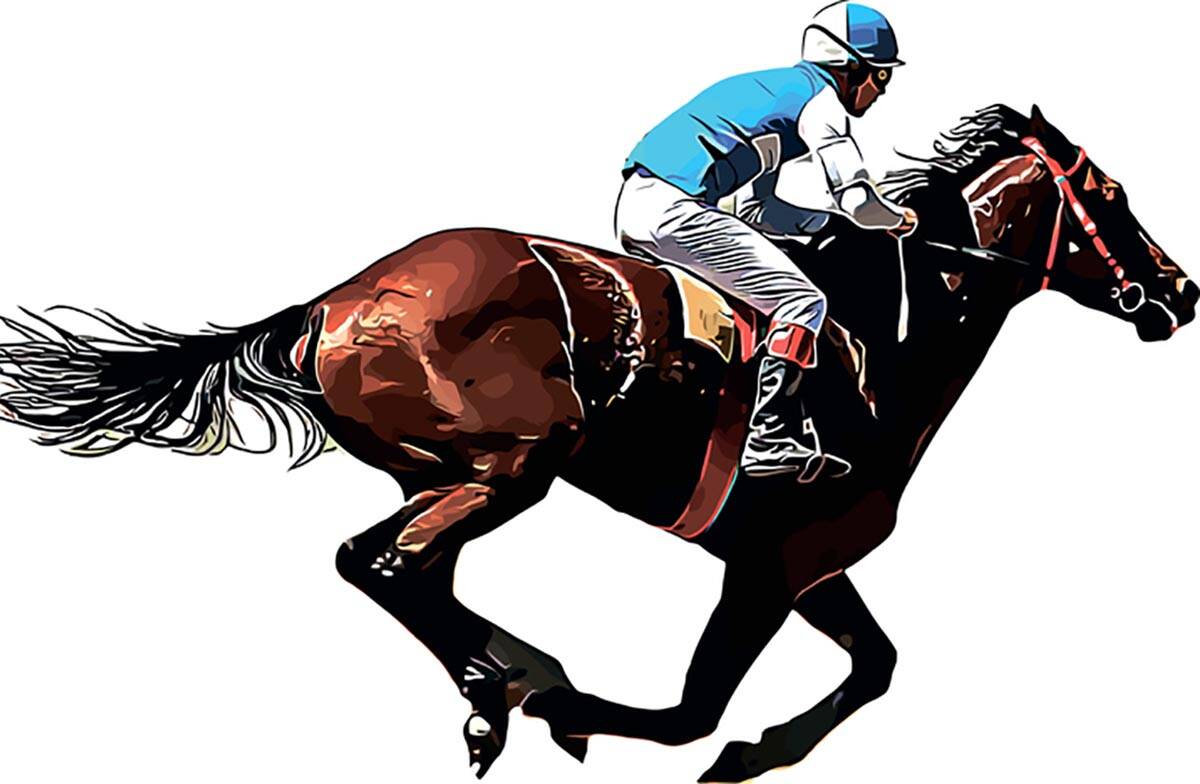Horse races OK’d for Nevada county fairs
The Nevada Gaming Control Board has recommended authorizing the running of county fair horse races in Ely and Elko in the summer after hearing about problems that occurred in last year’s races.
The board voted unanimously to recommend permitting races for Agriculture District No. 13, Aug. 19-21, in Ely, and for the Elko County Fair Board, Aug. 26 through Sept. 5, in Elko. The Nevada Gaming Commission will consider final approval at its June 23 meeting.
Horse races in eastern Nevada feature thoroughbreds and quarter horses and are well-attended county fair events. Parimutuel wagering is permitted on the races and there normally are six to 10 races a day.
The Ely races have been run since 1934, formed by area ranchers as a diversion from the Great Depression.
The Elko races have a total purse of $200,000, with a minimum $5,000 per race. The meet includes the 72nd annual Intermountain Quarter Horse Futurity and the 40th annual Elko County Quarter Horse Derby.
Brian McIntosh, the Control Board’s Enforcement Division supervisor in Elko, said he saw no reasons for concern for the upcoming races, but he did brief board members on problems from last year’s races, two of which resulted in $750 fines.
McIntosh said at the White Pine County races in Ely, a horse in a race left the course over the track’s outside rail at one of the course turns and in another instance, a horse reared in the starting gate, dislodging the jockey. Neither horses nor jockeys were injured in the incidents.
McIntosh said the White Pine County track has since been modified so that the turn isn’t as abrupt as it was, the outside rail was raised and barriers were placed within the chain link so that horses cannot see outside the track.
McIntosh said the accident in the starting gate couldn’t have been prevented and the jockey, wearing a protective helmet and vest, made contact with a crossbar on the gate.
In the Elko incidents, investigators determined that horses had illegal substances in their systems after post-race urine and blood tests.
State gaming regulations forbid the use of certain drugs at certain levels. In one case, a veterinarian treating a horse used an anti-inflammatory drug not on the state’s list of approved medications.
In the other incident, a veterinarian treated a post-training injury with medication after another drug was already in the horse’s system. “Stacking” medications is not permitted under gaming regulations.
McIntosh determined that using the medications was an oversight and not an attempt to cheat in the race. In both cases, trainers were fined $750 and the cases were closed.
McIntosh said that every horse that wins or places in a race gets tested and that there are also random tests administered. During races, between 50 and 70 blood and urine samples are taken and the test results are reviewed by the state veterinarian.
Control Board Chairman Brin Gibson said the annual races are a throwback to historic Nevada.
“This is holdover from the old West,” Gibson said prior to the vote. “It shows how diverse the state is. It’s wonderful.”
Contact Richard N. Velotta at rvelotta@reviewjournal.com or 702-477-3893. Follow @RickVelotta on Twitter.


















